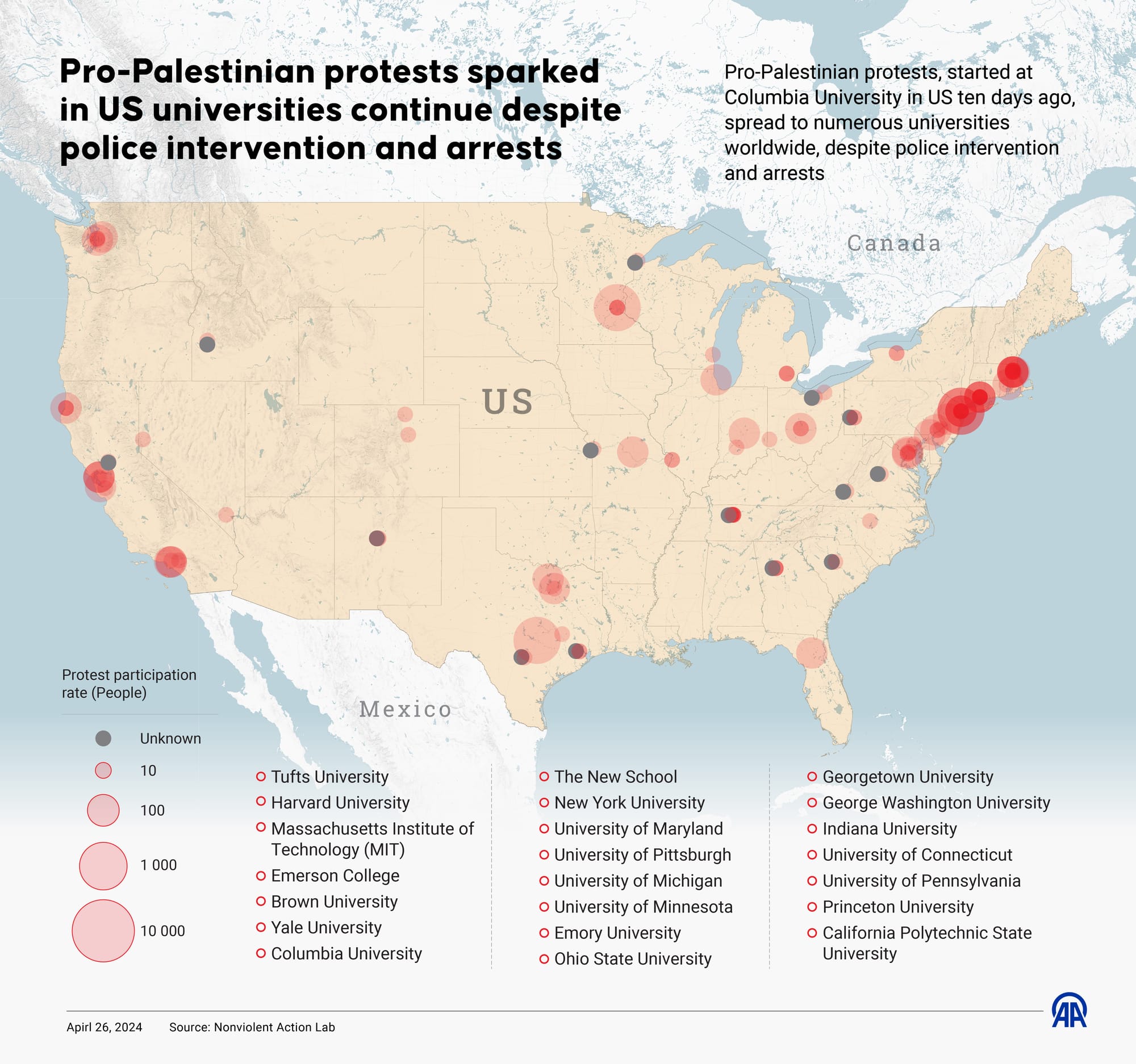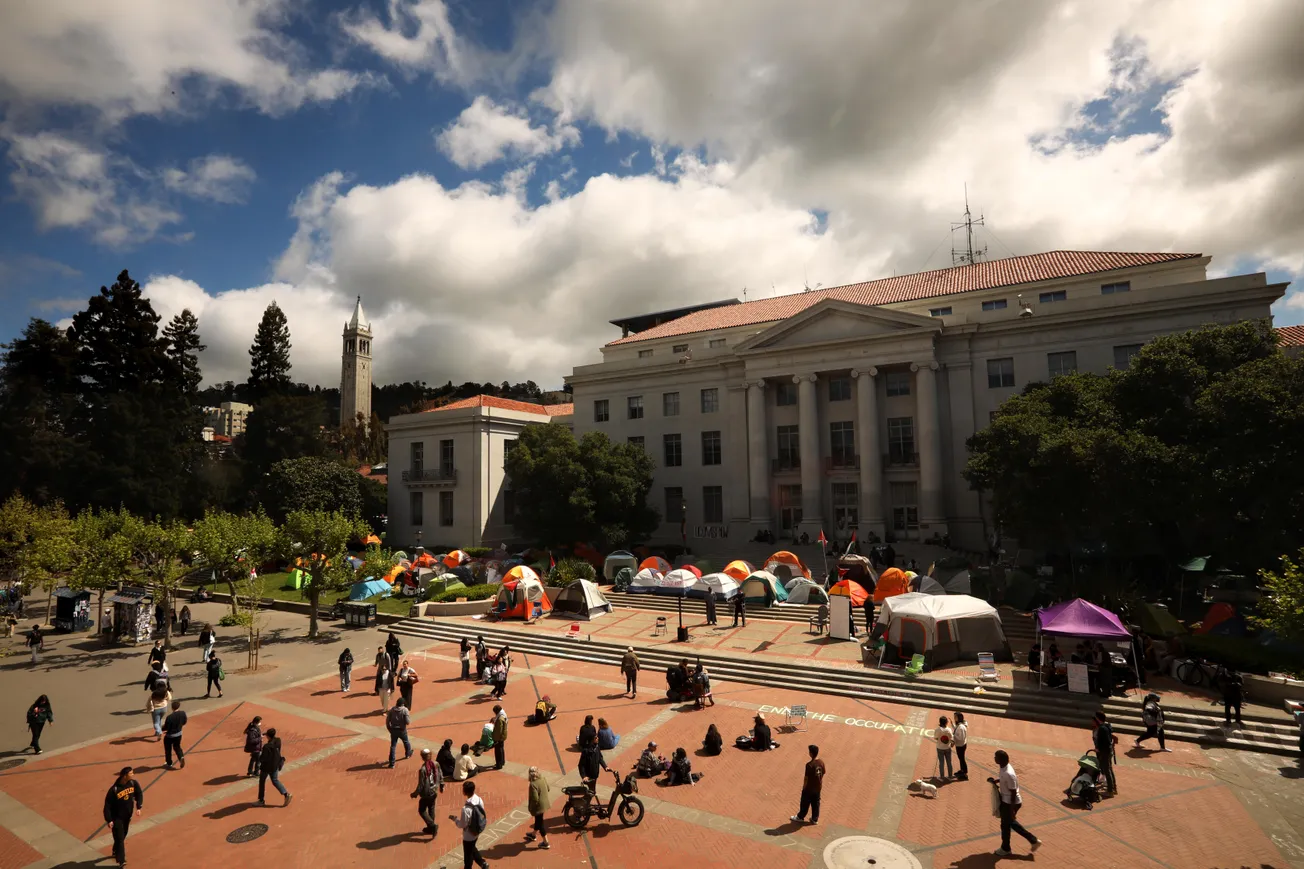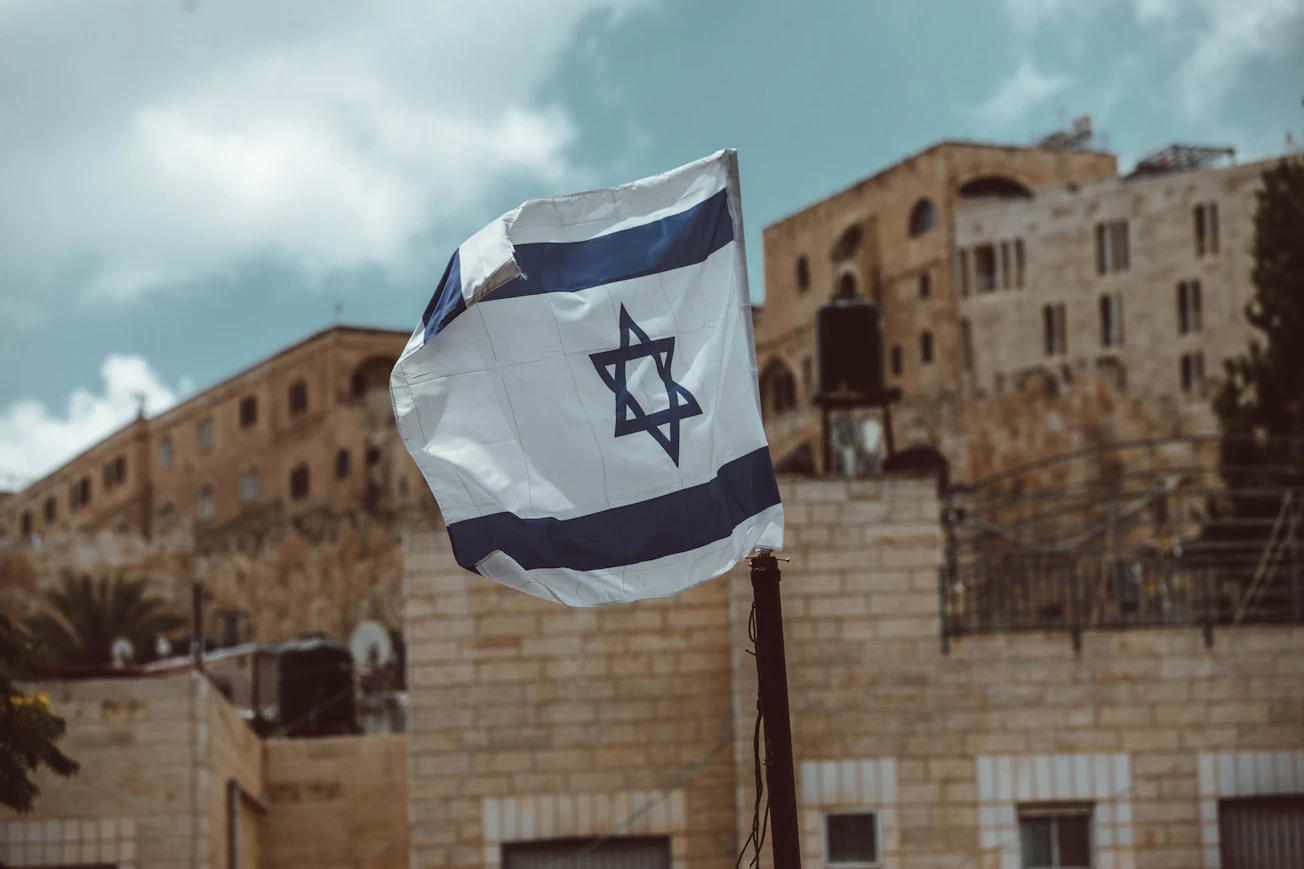Yesterday, Nick Wilson, a second-year undergraduate student at the School of Industrial & Labor Relations at Cornell University, was temporarily suspended from the university for participating in a pro-Palenstine nonviolent encampment. Wilson was among four students suspended, two of whom were international.
We wrote an editorial on these pages stating that campus protests, spreading rapidly across America from coast to coast, are bound to fizzle out in a few weeks when the spring semester ends. We noted that the demonstrations lacked seriousness and staying power. There is no student leader that the media can turn to for clarification about the protests' mission. Protests without leaders don't have staying power and will likely result in anarchy, like the BLM-inspired summer riots of 2020.
We were also critical that if there is any organization at all that drives these campus demonstrations, it is weak and ineffective. At Columbia, three groups - Students for Justice in Palestine (SJP), Jewish Voice for Peace (JVP), and Within Our Lifetime - pitched tents. The Cornell student says he is an organizer with the Young Democratic Socialists of America and Cornell's Coalition for Mutual Liberation.
Socialism is a fringe movement in America that dates back to the 19th century. It has encompassed various ideals, but the central vision, as Wilson says, is that different groups are structurally oppressed - and a better world is possible only if the working class collectively acts. Various terms have been used to describe socialists, including anarchists, communists, democratic socialists, social democrats, Marxists, Marxist–Leninists, Trotskyists, and utopian socialists.
The most famous socialist in America today, independent Vermont senator Bernie Sanders, ran for the Democratic nomination twice in 2016 and 2020. He became a media star and drew massive crowds, but he failed to win more than a few New England and coastal states. In the Senate, Sanders has been a critic of Israel because of the Palestinian cause. He tabled a motion to make US military support conditional on whether Israel is violating human rights in Gaza. It failed by 72 votes to 11. He was also the only senator in the Democratic caucus to vote against advancing a bill in February that would send $14.1 billion in military aid to Israel. (Sanders also voted against the recent $95 billion aid package for Ukraine, Israel, and Taiwan because of funds included for Israel.)
The Squad, an informal group of nine Democratic House members that owes its very existence to Bernie, includes some of the most left-wing politicians in America: Alexandria Ocasio-Cortez of New York, Ilhan Omar of Minnesota, Ayanna Pressley of Massachusetts, Rashida Tlaib of Michigan (a daughter of Palestinian immigrants), Jamaal Bowman of New York, and Cori Bush of Missouri. While Pramila Jayapal of Washington doesn't count herself as a Squad member, she frequently votes with the Squad on every liberal cause and was one of Sanders's campaign chairpersons.
The Squad supports the Boycott, Divestment, Sanctions (BDS) campaign, a Palestinian-led movement that began in 2005 to "promote freedom, justice, and equality." BDS maintains that Israel occupies and colonizes Palestinian land, discriminating against Palestinian citizens of Israel and denying Palestinian refugees the right to return to their homes. Inspired by the South African anti-apartheid movement, BDS urges action to pressure companies from doing business in Israel. Over time, BDS hopes that Israel will become isolated as more companies, universities, and organizations boycott the Jewish state.
In a non-binding vote in the House in 2019, Congress voted on whether or not to support BDS ideals as a way to pressure Israel. By an overwhelming margin of 398-17, the House showed its bipartisan support for Israel and defeated the proposal. But all the Squad members were part of the 17 legislators who voted to support BDS.
A common theme across the current campus protests is that students repeat verbatim the talking points of the BDS movement. BDS is notably silent about the Oct 7 Hamas attacks that killed nearly 1,200 people, including 764 civilians and 373 Israeli security personnel. A further 248 persons were kidnapped, many of whom have since died. Dozens of hostages remain in Hamas custody. Student protesters either omit to mention the Hamas attacks or justify them by saying that more than 31,000 Palestinians have been killed as a result of Israel's disproportionate response in Gaza.

Isra Hirsi, the daughter of Squad member Ilhan Omar, was one of a hundred students cuffed and arrested by the New York Police Department at Barnard College and Columbia University. After Hirsi had her living privileges revoked, she told reporters that she was homeless, hungry, and had nowhere to live. Following Hirsi's arrest, Congresswoman Omar, who was removed from the House Foreign Affairs Committee for past controversial comments that invoked antisemitic tropes, said that she was "enormously proud" of her daughter. A week later, Omar visited the pro-Gaza encampment to take selfies with activists, smiles all around.
We have consistently maintained that boycotts do not work because they often impact those who can least afford such activism. The BDS-inspired campus protests will suffer the same outcome. It is unlikely that American companies that have long-standing businesses in Israel will withdraw because of a few thousand students. These students must first understand if they have sufficient influence in Jerusalem to help change policy. A powerful force such as America, on whom Israel depends for weapons, military aid, and diplomatic support, has had zero impact in its efforts to change Israel's policy in Gaza. What meaningful chance do these students have to convince Netanyahu to change his approach to Gaza?
Everything that is happening on college campuses today is drama and a made-for-TV show designed to test university administrations' ability to balance free speech rights against the disruption of university missions of teaching and learning. The protests will not move the needle in Gaza one tiny bit.









